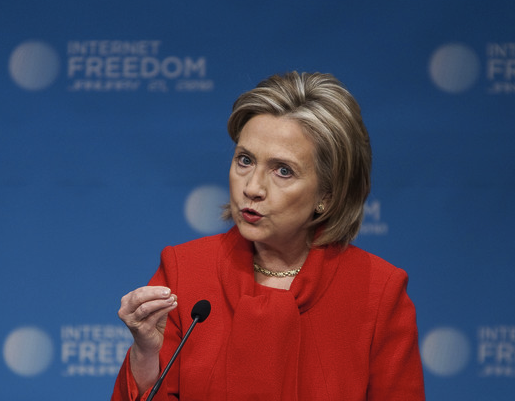State's Internet Freedom Program - The Upside

The Washington Post recently published an oped piece called "Moving forward with Internet freedom" criticizing the State Department's Internet Freedom program for being slow to disperse funds and not channeling funds to one tool - circumvention technologies - warning that the program has been stagnant while authoritarians move forward with repressive their online tactics.
While the State Department's program isn't perfect, and we've shared our thoughts on how to improve it with officials over the last year as well, the Post's critique doesn't recognize some of the important outcomes of the program and suggests the wrong corrective action.
The programs directly funded by State are certainly the most important drivers of the policy, but there have been ripple effects that have led to important and overdue changes in the tech and democracy community. Between Secretary Clinton's first Internet Freedom speech in January 2010, and her follow-up speech last month important progress has been made.
The most important change I’ve observed has been improved approaches among democracy groups, including NDI, to protect activists we work with who use technology and social media in tough countries. While human rights and other tech groups have long been focused on the complexity of communications and data security using various tools, groups in the democracy community have always recognized the need for security, but were not adequately aware of the breadth, depth and changing nature of the challenges nor involved enough in helping design effective solutions.
However, due to the recent focus on this issue by the Secretary and the competition developed and partnerships made as a result of the funding issued last year, NDI and likely others in the democracy community have made greater efforts to build security planning into democracy programs not only in the toughest countries, but also in semi-authoritarian states where political space exists but is being squeezed. We’ve learned that there is an astonishing degree of confusion and misunderstanding about these security issues among activists and democracy practitioners – and NDI is becoming increasingly proficient at demystifying them and helping build safer approaches.
This is a complex field and we’re not experts yet, but we’re definitely putting more focus on the myriad of issues around security and helping activists better understand the environments they are working in and how to protect themselves while carrying out effective reform work. NDI democracy programs are increasingly taking the issues surrounding net freedom into account and are better for it.
The more concerning problem with the Post piece is that is prescribes a short-sighted approach to the challenges faced by activists working in authoritarian countries. Appropriate responses to net freedom that involve working with activists or civic groups in authoritarian countries require a comprehensive approach to communication security – not tools driven approaches – there simply are no silver bullets. While circumvention and proxy tools are important, to focus on these at the expense of other tools, and more importantly, without accommodating for the development of strategies and approaches that include risk assessment, comprehensive security plans, training and financial support to assist groups working in tough countries is shortsighted, and may even be dangerous if it supports a belief among activists that silver bullets for security exist. The State Department program, as most recently outlined by the Secretary’s February speech, accommodates all of these other necessary components.
If there is one thing the State Department team has done right in the past year as they hone their Internet Freedom approach it has been to encourage creative and comprehensive programs that don't focus on a single tool or technology.
Another thing they have done right, and for full disclosure, is hiring great new team members including former and longtime @NDITech colleague Ian Schuler. Ian is a great addition and will help move the program in a good direction as he brings 10 years of experience working on democracy programs around the world with NDI - including in some of the most difficult closing and closed societies. The fact that State is bringing in people with as much "on the ground" experience as Ian has is a good sign - and good for net freedom in general.
Updated 3/18: added last paragraph.
